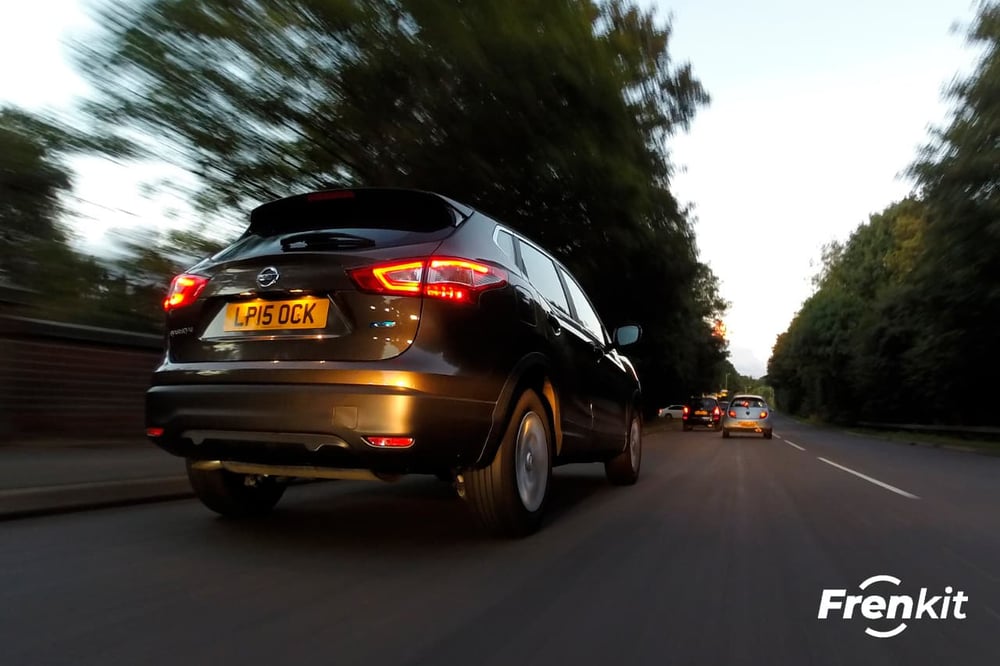
Brake calipers are characterised by being an important part of the braking system of our vehicle. They are one of the elements that suffer the most wear and tear on a daily basis, e.g. rust on the brake caliper, which is why it is important to carry out correct maintenance and, if they cannot be repaired, to replace them with other brake calipers that are in perfect condition.
In previous Frenkit posts we explained that, for safety reasons, it is important to bear in mind that special inspections and maintenance work should be carried out from time to time. In this post we clarify which are the situations in which the brake caliper can get stuck and should be changed and how we can identify faults. Moreover we need to know how to assemble a brake caliper. Keep reading!
Change brake caliper: when to do it
We must be clear that, although the types of brake calipers are not an element subject to continuous friction, this does not mean that they cannot be damaged. The easiest way to check if you have to replace your brake calipers is to verify that your vehicle's brakes are working properly. As we have already mentioned in previous posts, there are several situations in which it is necessary to check whether or not the brake calipers of our car need to be repaired, and we must do so if we don't want to have a scare at the wheel. Checking that our brake calipers fit the vehicle when we start driving guarantees us a certain degree of safety.
Brake caliper check indicators
Both brake pads and brake calipers suffer increased wear depending on factors such as the type of driving or the environment in which we drive our car, for example. If we get into the habit of braking progressively and driving properly, we can prolong the service life of our vehicle's brake system.
At Frenkit we have selected the most common indicators for which it is advisable the brake calipers replacement:
- Noises when braking. If your brakes 'squeal' when braking, this can be caused by a number of factors, ranging from the most natural and simple to the most serious. When replacing a brake pad with a new one, the pad may have a crystallised surface and make a squealing noise or, worse still, the metal bracket of the pad may be rubbing against the brake discs due to excessive wear.
- Vehicle warning light. Today's vehicles are often fitted with a sensor in the brakes that warns of brake pad life and whether the pads need to be replaced.

- Loss of braking efficiency. When the foot brake is applied, there is a possibility that the vehicle may not brake properly or may take longer to stop.
- On the recommendation of a professional. If you decide to take your car to a specialist workshop and the mechanic advises you to change the brake pads or calipers, it is best to follow his recommendations.
- Checking by yourself. By removing the wheel from the vehicle yourself, you can find out if the brake calipers need to be replaced; you should be aware of the complexity of this process and the importance of carrying it out correctly. When carrying out this inspection, be sure to follow the manufacturer's recommendations. If you do not have these recommendations, we recommend that the brake pad thickness is no less than 2-3 mm for rear brake pads and 4 mm for front brake pads.
- Incorrect use of brake fluid. It may happen that the type of brake fluid is not the correct one for our vehicle or that the brake fluid level is below the indicated level.
- Vehicle vibrations. If the brakes become too hot, the brake discs may become slightly deformed. This will cause vibrations during braking. Also, if a brake component has a lack of lubrication, brake noise and vibration may occur.
Once you have changed the calipers and brake pads on your vehicle, you may find that they are not very effective for the first few kilometres: don't be alarmed! This is quite normal, as they need a short break-in period and adaptation to the terrain.
Whether you are a professional in the automotive sector or you decide to change the brake calipers of your vehicle yourself, at Frenkit, a brake part distributor, we manufacture and distribute brake components for all ranges of vehicles.
Did you find this post interesting? Do you know of other situations in which brake calipers need to be changed?


![[Learn about the advantages and disadvantages of self-repairing your car's brake caliper and master cylinder]](https://no-cache.hubspot.com/cta/default/7520036/643aa925-77a2-4e45-8bab-b85ba379e6cb.png)
